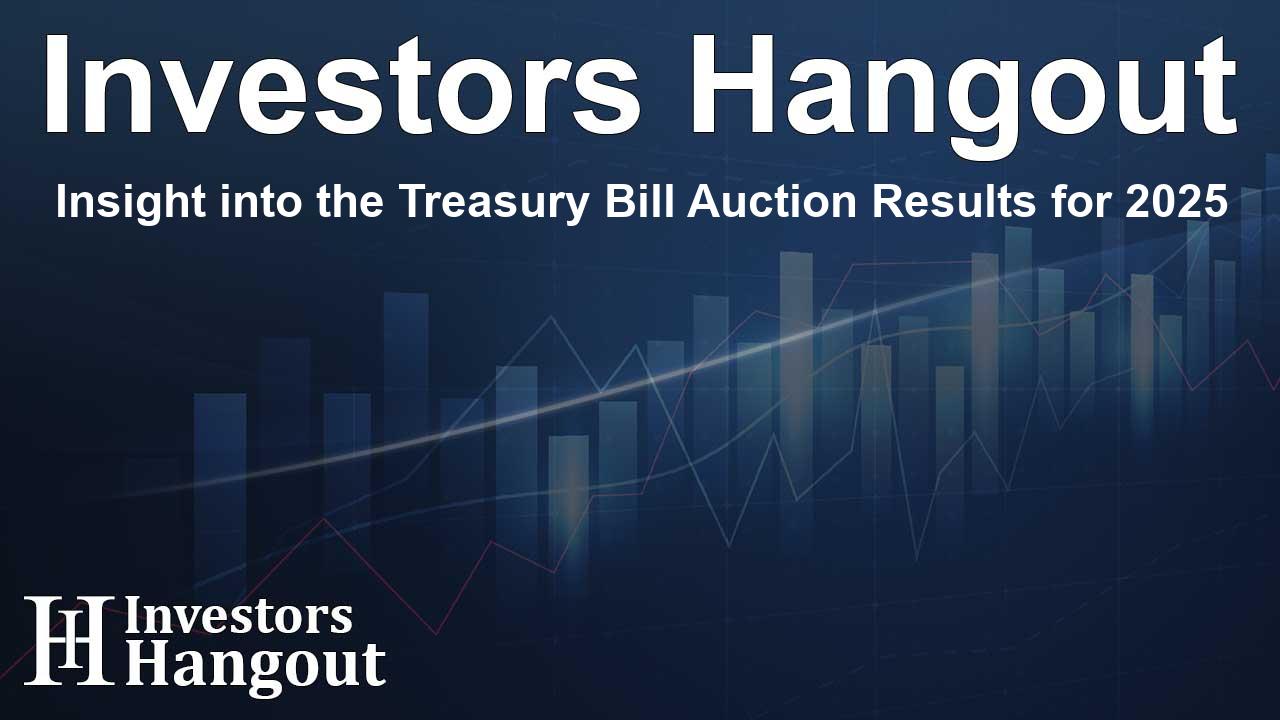Insight into the Treasury Bill Auction Results for 2025

Treasury Bill Auction Results Overview
Understanding the outcomes of treasury bill auctions is crucial for investors and market analysts alike. The recent auction provided valuable insights into the interest rates, bids, and overall market conditions. The auction held marked a significant event in the financial calendar, with participants eager to gauge sentiment and competitiveness in the government securities market.
Details of the Bidding Process
During the auction, bids were submitted for treasury bills with various maturities. The auction process revealed a healthy demand, indicating investor confidence. Bidders typically include banks, institutional investors, and sometimes individual investors looking for stable returns.
Breakdown of Bids and Sales
For example, looking at specific securities from the auction, we can see that Will statements provide detailed information about the total bids received and the sales that transpired. The results highlighted significant interest, particularly in the longer-dated securities.
Performance of Treasury Bills
The performance of the treasury bills can be evaluated by examining their stop rates, which reflect the yield investors are willing to accept. During this auction, the following treasury bills were prominent:
Key Auction Metrics
For the security with ISIN 98 19823 DKT 02/06/25 II, the bidding reached a nominal amount of 100 million kr., with a stop-rate set at 1.960%. The competitive sale price of 99.6636 illustrates investor sentiment and market dynamics. On the other hand, another significant entry, ISIN 98 19906 DKT 02/09/25 III, matched similar levels of interest with a stop-rate of 1.840% and a price of 99.2190, showing healthy demand throughout the auction period.
Implications for the Financial Market
The results of this treasury bill auction are not just numbers; they provide insights into macroeconomic conditions. When investors perceive stability, they are more likely to participate actively in such government securities, thus reinforcing their importance in financial strategies.
Looking Ahead
The upcoming settlement on April 1, 2025, is another date for investors to watch. This ongoing interest in treasury bills can potentially influence monetary policy decisions moving forward, emphasizing the importance of keeping a pulse on these auctions.
Frequently Asked Questions
What is the purpose of a Treasury Bill auction?
Treasury Bill auctions aim to raise funds for government financing while providing investors a low-risk investment opportunity.
How are bids submitted in auctions?
Bids can be submitted electronically by qualified institutions or through financial brokers who handle treasury purchases.
What does the stop-rate indicate?
The stop-rate is the yield assigned to the bills at auction, signifying the returns accepted by bidders.
What is the importance of the sale settlement date?
The settlement date is when the transaction is completed, and funds are exchanged, indicating the final step in the auction process.
Who participates in Treasury Bill auctions?
Participants typically include banks, institutional investors, and individual investors seeking secure returns in their investment strategies.
About The Author
Contact Evelyn Baker privately here. Or send an email with ATTN: Evelyn Baker as the subject to contact@investorshangout.com.
About Investors Hangout
Investors Hangout is a leading online stock forum for financial discussion and learning, offering a wide range of free tools and resources. It draws in traders of all levels, who exchange market knowledge, investigate trading tactics, and keep an eye on industry developments in real time. Featuring financial articles, stock message boards, quotes, charts, company profiles, and live news updates. Through cooperative learning and a wealth of informational resources, it helps users from novices creating their first portfolios to experts honing their techniques. Join Investors Hangout today: https://investorshangout.com/
The content of this article is based on factual, publicly available information and does not represent legal, financial, or investment advice. Investors Hangout does not offer financial advice, and the author is not a licensed financial advisor. Consult a qualified advisor before making any financial or investment decisions based on this article. This article should not be considered advice to purchase, sell, or hold any securities or other investments. If any of the material provided here is inaccurate, please contact us for corrections.
